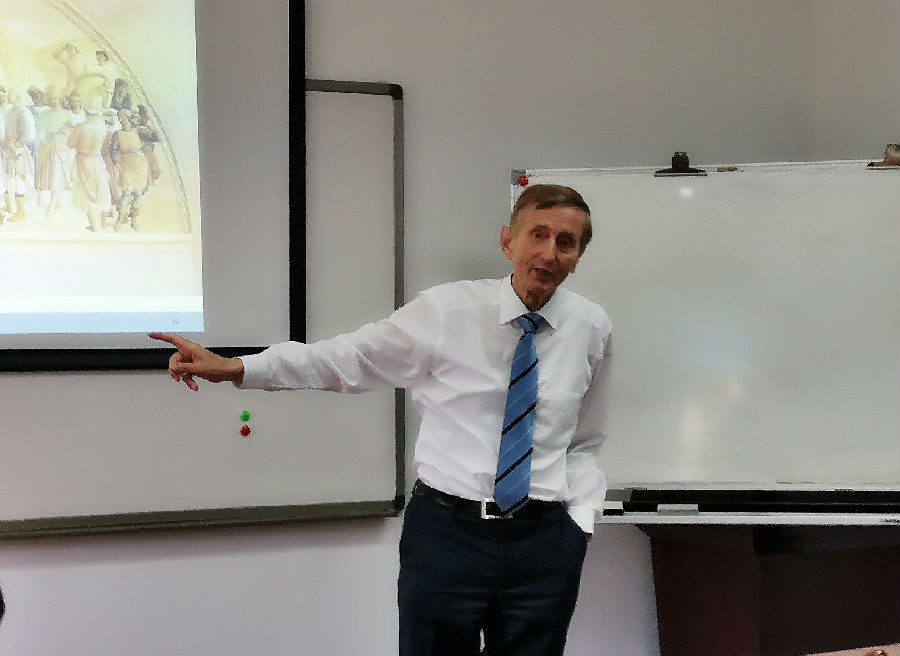
On the afternoon of September 16, 2019, Bertram Schefold, Senior Professor from the Faculty of Economics at Goethe University Frankfurt, renowned German economist and sociologist, and the Honorary Chairman of European Society for the History of Economic Thought attended the 83th Session of Chen Daisun Theoretical Economics Lecture, and delivered a speech entitled “How Europe Rises: The Role of Economic Knowledge in Institutional Construction and Economic Growth”.
Prof. Schefold first pointed out the paradox of economic knowledge and put forward that although knowledge-based economy has always been used as an additional supplementary factor to explain the economic success of different countries and cultures, it plays a more important role in explaining “why industrial revolutions and economic growth started full-scale acceleration in Western Europe”. Identifying the significance of economic knowledge may involve: identification of economic knowledge, functional transmission mechanism that is not easily discoverable, and the causality that is almost unverifiable in hypothetical alternative sequences. Therefore, it is necessary to study different economic forms by exploring the co-evolution of multiple semantics and economic systems and by combination of theory and practice.
Prof. Schefold believes that the reasons why little attention is given to economic knowledge in studies of economic history lie in five aspects. 1. Neoclassical economics and Max Weber’s thoughts dominate for a long time in the past. so economic knowledge that is helpful for understanding the logic of economic process has little effect on Max Weber's thought and neoclassical economics, and is seldom taken into account. 2. The emphasis on technical knowledge during the industrial revolutions produces a strong desire to combine observational science with applied science. But the fact that there are similar situations in the economics is often neglected. 3. Capital accumulation, progress of exogenous technology, effects of endogenous agglomeration and accumulation of human capital are included in the economic growth theory, while economic knowledge is excluded. 4. Economic knowledge is often tacit and considered outdated. 5. Economic knowledge gives rationalized explanations on economic realities, and in itself,also represents economic realities. As a kind of tacit knowledge, however, it needs to be understood with the help of the history of economic thoughts. These factors result in the lack of attention to economic knowledge.
After that, Prof. Schefold analyzed German traditions and social market economy, introduced the history of Ordo Liberal School and Rudolf Christoph Eucken’s criticism over the History School. He explained the concept, proposed by Miller Amak of the Freiburg School, that social market economy reflects a model of peaceful coexistence (i.e. a model to create peaceful coexistence). He also demonstrated his viewpoints through some historical cases that show a vital role of economic knowledge, such as influences of economic knowledge in the history of Europe, monetary theories and policies in England in the 19th century, and currency debate and usury debate in the Anglo-Saxon period in the 16th century.
Contributed by Ding Chunyan